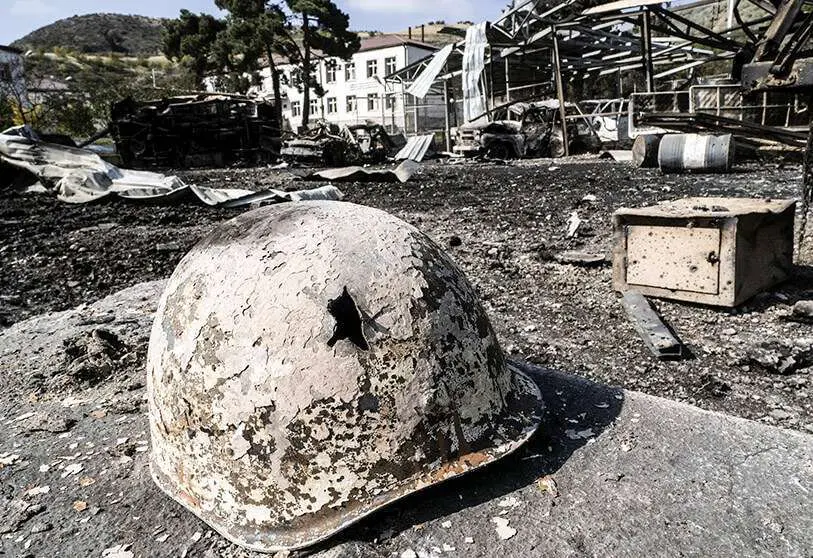Nagorno-Karabakh, irredentism in the Caucasus

Once again, the traces left over the course of history are making a dent in the present, in this case in the Caucasus area, specifically in the Upper Karabakh or Nagorno-Karabakh region. This is an Armenian territory located on Azeri soil, the result of a strategic system of control, which ensured heterogeneity and hostility in its territories. Their coexistence was forced despite the discrepancies, and by encouraging hostility the Soviet Union ensured its presence and intervention in their relations. With the disintegration of the Soviet Union, the Soviet territories gained their independence, and Armenia and Azerbaijan were established as republics and the problem of whether the territory of Upper Karabakh belonged to them resurfaced.
This region covers 4,400 sq km and is located in an area where gas pipelines pass through, where the majority Armenian Catholic-Orthodox population lives together with an Azeri minority of Turkish-Sunni origin. After independence, Upper Karabakh applied to join Armenia, and was supported by 90% of the population in a referendum in the 1980s. Initially the requests were carried out peacefully; however, following Azerbaijan's refusal to cede the territory, they turned violent, leading to ethnic cleansing by both nations, which is considered one of the bloodiest wars of the 20th century, leaving over 30,000 dead, of whom 25,000 were of Azeri origin, and over a million displaced in the Armenian diaspora, who fled especially to the United States.
Both territories had, and have, international support. In this case, Azerbaijan, an ally of Turkey owing to its cultural, ethnic and religious ties, Israel, Afghanistan and Pakistan, and Iran, which, despite maintaining cordial relations with Russia, shares religious ties and is home to a large percentage of the Azeri population. While Armenia, with its irredentist policy, is alone, its only support being Russia driven by its strategic interests and religious coincidence; its role is absent, entering the conflict only in cases of extreme and urgent need. On the other hand, it is necessary to mention the historical hatred between Armenia and Turkey following the genocide carried out by the Turks against the Armenian population between 1915 and 1923.
As a result, the first wave of violence, known as Black January, broke out in 1988, leading to a mass persecution of Armenians throughout Azerbaijan. Tensions dragged on for several years. Once the international mediation process failed, in 1993 the Armenian forces occupied the areas adjacent to the Upper Karabakh or Republic of Artsaj, controlling 14 percent of Azeri territory and the territory of the Republic itself the following year, leading to a ceasefire without reaching a peace agreement.
In April 2016 the truce ended and the so-called "Four-Day War" began, waged by the Upper Karabakh Army, backed by Armenian forces, against Azerbaijan, assisted by Israel, which provided it with artillery. As a result, the supposed Azeri conquest of part of the claimed territory, a fact denied by Armenia, and a bilateral ceasefire, which was extended until the same year.
In July 2020 the Armenian defence minister broke the ceasefire and killed three Azeri soldiers in Toruz, on the border between the two countries. The facts are justified on the grounds that, despite being warned, they violated the orders not to cross the border and set foot on Armenian soil. In contrast, the Azeri defence minister argues that Armenia had violated the ceasefire on a total of 97 occasions. For two days combat took place in the area on both sides, prompting international action with protests from the Azeri community in Hungary, Austria, Russia, the Czech Republic, Germany and Azerbaijan, and by the Armenian diaspora community in Canada and the United States. While some base the illegal occupation of Azerbaijani territory, the others allege the indiscriminate and violent attack by the Government of Azerbaijan against the Armenian community.
The conflict continues today following the establishment of martial law by both nations, on this occasion Azerbaijan being the alleged instigator of hostility following the attempt to control areas south of Upper Karabakh, the UN being forced to intervene, calling for peace in what would now be an imminent war.
